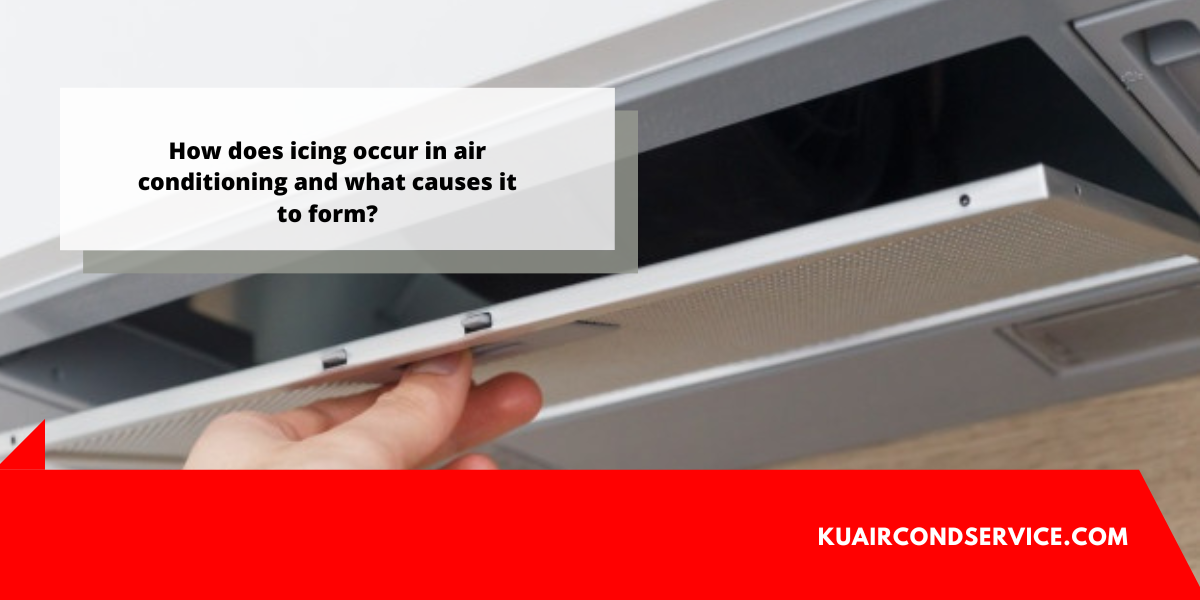It’s hot outdoors, and you’re spending time with your family at home. You’re not concerned because the summer heat won’t bother you, but your air conditioner suddenly quits working. When you inspect it, you discover ice. Even ice might fall from your air conditioner after you turn it off. Damn! How is this possible? This would be your initial reaction. You are not alone yourself. When they notice ice on their house air conditioner, almost everyone has the same reaction.
Even in the summer, frozen air conditioning is caused by a multitude of factors. The cooling process is hampered when ice or frost accumulates on your AC unit.
- What does icing on an air conditioner mean?
The ice problem with air conditioning should not be ignored. Ice on your air conditioner signals a problem with your AC component. The problems might be with your gas, filter, evaporator coils, fans, or engine, among other things. All of these components are intricately designed to work in harmony with one another. However, when they are unable to achieve this synchronization. Your air conditioner begins to malfunction. One of them is frozen ice on air conditioning coils. Ice melts and falls to the ground through the AC window.
- Causes of Icing on Air Conditioners
When the components fail, ice begins to form inside or outside the air conditioner. The following are the main reasons and responsible components:
- The evaporator coil: The aircon fan continually circulates air inside the AC unit, keeping the temperature of the cooling coils above freezing. When the evaporator coil does not receive enough air from the air blowers, the temperature drops below the freezing point. In this situation, evaporator coils cause moisture to condense and form frost on the coils.
- Aircon filter: A clogged air conditioner filter can cause ice buildup. They lack appropriate airflow when the filter becomes filthy and malfunctions. Insufficient air passes over the evaporator coils as a result of filthy filters, causing them to get overly chilly. If this persists, your air conditioner will circulate little or no cold air into the room and will accumulate ice.
- Inadequate Feron level: If your air conditioner leaks, the gas tank slowly empties. Frost forms in the air conditioner due to a lack of Feron (gas). The temperature of the air conditioning system will drop when the refrigerant (gas) in the system becomes too low owing to leaks over time. The evaporator’s refrigerant liquid vapor causes ice to form on the coil.
- Debris accumulation: Ice development can also be caused by debris accumulation on evaporator coils. The accumulation of dust and dirt on the evaporator coil has hindered airflow. It affects efficiency due to a lack of air conditioner coil cleaning. When this happens, the coil becomes so cold that the condensate that forms on its surface entirely freezes and plugs the coil.
- Thermostat failure: The thermostat determines how long the air conditioner should operate in order to cool the entire room. In a nutshell, it controls the temperature within the air conditioner area. When the thermostat fails, it does not alert Aircon to halt cooling. Due to a malfunctioning thermostat, the air conditioner runs incessantly in its endeavor to maintain a cool environment within the room. As a consequence of this defect, ice can accumulate in the air conditioner, compelling it to operate with increasing frequency.
- A fan that has been damaged: Another cause of air conditioning ice is that your evaporator unit may not be working properly due to a faulty air-blowing fan. If the fan is not supplying air to the coil and the surrounding area. The fan may have been damaged. The fan motor may have burned out, or there may have been some loose connections.
- Outdoor temperature is low: When the outside temperature drops too low, the air conditioner system may have unfavorable impacts in the form of ice development.
- What to Do When Ice Forms in an Air Conditioner
- If you don’t clean your air conditioner filters on a regular basis. Cleaning it might help to resolve the frozen air conditioner issue. If the filter is dusty or blocked, clean it. The air filters are usually positioned behind the front grille, which is held in place by plastic tabs (depending on the air conditioner type).
- Allow the ice on the exterior and interior aircon coils to defrost before cleaning the air filters. Do not try to scrape the ice with a knife or anything sharp. It may cause harm to the air conditioner’s other components. Allow enough time for the ice to melt naturally.
- By pressing the button on the remote, you may easily switch the machine to fan-only mode. (If your air conditioner has this option) and set the speed to high. The freezer should thaw fast. Then, in Fan mode, operate the unit until the coils or vents are dry or almost dry.
- Additionally, make certain that no furniture or curtains are blocking the return vents.
- After cleaning, replace the air filter in the air conditioner. Start your air conditioner to determine whether the problem has been resolved. If not, have a professional air conditioning technician inspect your AC.
- What Not to Do When Ice Forms in an Air Conditioner
- Continue to use the air conditioner if it has frozen. It may have a more severe impact on another component of air conditioning. Using Aircon with ice formation might totally halt the airflow and burn the air blower fan’s motor.
- Ice buildup in your air conditioner can stem from multiple causes, with the primary culprit being refrigerant (gas) leakage. If you suspect such a scenario, it is crucial to avoid filling the tank independently. Engaging in such an action will only perpetuate the leakage, resulting in the gas dissipating into vapor. To effectively resolve this issue, it is imperative to seek the assistance of a qualified professional who can expertly address and completely eliminate the leakage.
Stay cool! Experience top-notch air conditioning service with Servis Air Cond Petaling Jaya by KuAirCondService. Don’t miss out on their exclusive offer. Book your service today!







